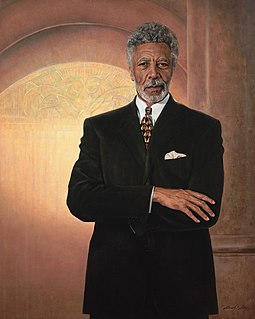A Quote by Baruch Spinoza
For peace is not mere absence of war, but is a virtue that springs from force of character: for obedience is the constant will to execute what, by the general decree of the commonwealth, ought to be done.
Related Quotes
"War," says Machiavelli, "ought to be the only study of a prince;" and by a prince he means every sort of state, however constituted. "He ought," says this great political doctor, "to consider peace only as a breathing-time, which gives him leisure to contrive, and furnishes ability to execute military plans." A meditation on the conduct of political societies made old Hobbes imagine that war was the state of nature.
To wage war on misery and to struggle against injustice is to promote, along with improved conditions, the human and spiritual progress of all men, and therefore the common good of humanity. Peace cannot be limited to a mere absence of war, the result of an ever precarious balance of forces. No, peace is something that is built up day after day, in the pursuit of an order intended by God, which implies a more perfect form of justice among men.





































